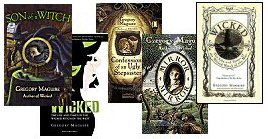
“The year I turned ninety, I wanted to give myself the gift of a night of wild love with an adolescent virgin.” So begins the story of a very old man, “ugly, shy, and anachronistic,” who has resolved to tell, finally, just what he’s “really like.”
“I have never gone to bed with a woman I didn't pay,” he continues, “and the few who weren't in the profession I persuaded, by argument or by force, to take money even if they threw it in the trash. When I was 20 I began to keep a record listing name, age, place, and a brief notation on the circumstances and style of lovemaking. By the time I was fifty there were 514 women with whom I had been at least once. I stopped making the list when my body no longer allowed me to have so many and I could keep track of them without paper.”
All this presumably changes when he meets “Delgadina,” the 14-year-old girl procured for his 90th birthday. He does not touch her that first night, nor the next night, nor the one after. Instead, he simply watches her sleep, exhausted as she is from caring for her siblings and crippled mother and from her day job sewing buttons. He’s smitten from the start, and so at the unlikely age of ninety, his life is overhauled by love.
I feel unqualified to dislike anything by Gabriel García Márquez, but with this slim novella I come very close. His other novels I’ve read (
100 Years of Solitude, Love in the Time of Cholera) left me absolutely floored. His talent is prodigious and undeniable, and I fully expected this to be yet another amazing story masterfully told. But to be honest
Memories falls a little flat. It’s García Márquez’ first work of fiction in ten years, and at a mere 115 pages long, I wonder if maybe its brevity is the problem. The qualities that usually amaze—his inventive “magic realism,” the color and innovation of his language, the swooping narratives that move seamlessly back and forth in time, the panoramic scope he manages with unwavering authority—feel squeezed out of this short work. Also, the book comes off, frankly, a little careless. Jumps in time are not as smooth as they could be, memories are inexplicably dropped before they're fleshed out or given meaning, and dialog can be downright confusing. Too, we're expected to overlook the grim realities of third-world brothels and the barbarism of sex for hire with barely-pubescent virgins and focus instead on the raptures and pains of love and old age. It’s a lot to ask.
Memories isn’t all bad, though. I enjoyed its humor and earthy sensuality, and there is some wisdom to be found in these pages—I will say it's not without merit as a meditation on aging, desire and regret. Oh and kudos to GGM for somehow avoiding salaciousness and making this narrator more than just a dirty old man. But to my sisters who want to try something short by García Márquez, I say better to go with
Chronicle of a Death Foretold.
 We just finished this, our next read-aloud, a couple days ago. What fun! Birdsall's voice and wit engaged us all from the first page. We were also immediately endeared to the four wacky sisters (OK, the oldest is mostly level-headed), their gentle professor father, and their comfortable, protective dog. Lighthearted and in the tradition of an old-fashioned family novel like The Moffats, this little book tumbles along at the speed of girltalk, with one true-to-childhood adventure after another. It succeeds in two unusual and impressive ways: real-life humor—we laughed out loud with every chapter; and freshness—the kids' scrapes are at once believable and unpredictable. Best of all, in this midst of this rollicking story, everyone finds comfort in family.
We just finished this, our next read-aloud, a couple days ago. What fun! Birdsall's voice and wit engaged us all from the first page. We were also immediately endeared to the four wacky sisters (OK, the oldest is mostly level-headed), their gentle professor father, and their comfortable, protective dog. Lighthearted and in the tradition of an old-fashioned family novel like The Moffats, this little book tumbles along at the speed of girltalk, with one true-to-childhood adventure after another. It succeeds in two unusual and impressive ways: real-life humor—we laughed out loud with every chapter; and freshness—the kids' scrapes are at once believable and unpredictable. Best of all, in this midst of this rollicking story, everyone finds comfort in family.






